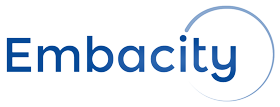Diplomats moving to Belgium can rest assured that the country boasts excellent healthcare facilities.
Belgium is well known for its national health system and was ranked 8th on the Euro Health Consumer Index in 2017. The Belgium healthcare system was noted for having among the best accessibility and fastest access to healthcare services than anywhere in Europe, although still not quite top class on medical treatment results (“Outcomes”).
Belgium’s recorded healthcare expenditure places it within the EU’s medium range of 3,500–4,000 €uros per inhabitant (in line with Finland, France, Austria and Germany), representing around 10.4 percent of annual GDP, one of the few countries to spend more than 10 percent on healthcare (including countries such as Switzerland, Sweden, the Netherlands, France and Germany).
The healthcare system
Unlike elsewhere, the division between the public and private healthcare sectors in Belgium is somewhat blurred. Fees are payable for both types of care and the system as a whole is funded by a combination of social security contributions and health insurance funds.
Hospitals in Belgium are either public or non-profit, while private clinics, usually managed by universities or religious organisations, offer basic treatments for minor ailments. Most doctors in Belgium work in both types of institution while dentists are almost all private.
Medical facilities in Belgium adhere to high standards of care and hygiene across the board. Most doctors and other medical professionals will have a good understanding of English so communication shouldn’t be much of an issue.
Health insurance
Anyone who is employed in Belgium has to contribute towards a Belgian health insurance fund (mutuelle/ziekenfonde) as part of the normal social security enrolment process. Most people opt to top up this cover with some form of private insurance which entitles them to a wider range of treatments. There are also special private health insurance plans, which have been designed specifically for Diplomats and are valid in a number of countries.
Most private health insurance policies allow patients to choose their own medical professionals and hospitals. Generally, patients are required to pay medical costs upfront and are later reimbursed a proportion of the fees by the insurance provider (Out-patients such as General practitioner). For In-patient, you can ask for a direct billing between the hospital or the clinic and your medical insurer.
Usually Diplomats are qualified as ‘non-resident’ tax status. If this is the case, they may not be required to contribute to national social security and will probably be covered by their employer’s healthcare plan.
Diplomats from the European Economic Area, Switzerland and the UK (at least until Brexit negotiations are finalised) can apply for access to the European Health Insurance Card (EHIC). This entitles you to the same treatment at the same cost as a national of Belgium. However, a card can’t be used within Belgium unless it has been issued elsewhere in the European Union so be sure to have this in place before you go.
Pharmacies and medicines
In Belgium, a pharmacy is known as a pharmacie or apotheek. They are plentiful and you’ll easily be able to spot them along shopping streets or in malls/shopping centres thanks to the neon green crosses positioned outside.
Most pharmacies in Belgium operate from Monday to Friday and on Saturday mornings. There is an emergency roster system in place for Saturday afternoons, Sundays and out-of-hours services. A number of pharmacies also offer 24-hour services. A list of nearby pharmacies that are open after hours can usually be found displayed on a pharmacy’s window.
Most over-the-counter medications are readily available and prescriptions must be paid for on collection. Where applicable, the type of medication and the percentage of the cost covered by the insurance provider may vary according to your policy. It is best to keep all receipts in order to make claims from your insurance scheme.
Emergency services
Emergency services in Belgium are reliable and response times are generally very good. In addition to the general European emergency number (112), expats will find the following numbers quite useful:
- Medical emergencies and fire services – 100
- Police – 101
- On-call pharmacy – 0900 10 500 / 070 66 0160 (fees apply)
Ambulances will take you to the nearest hospital, but unless you have an insurance policy which covers this cost, expect to be charged.
For more details on Belgium Healthcare system or for an Medical insurance quote :
